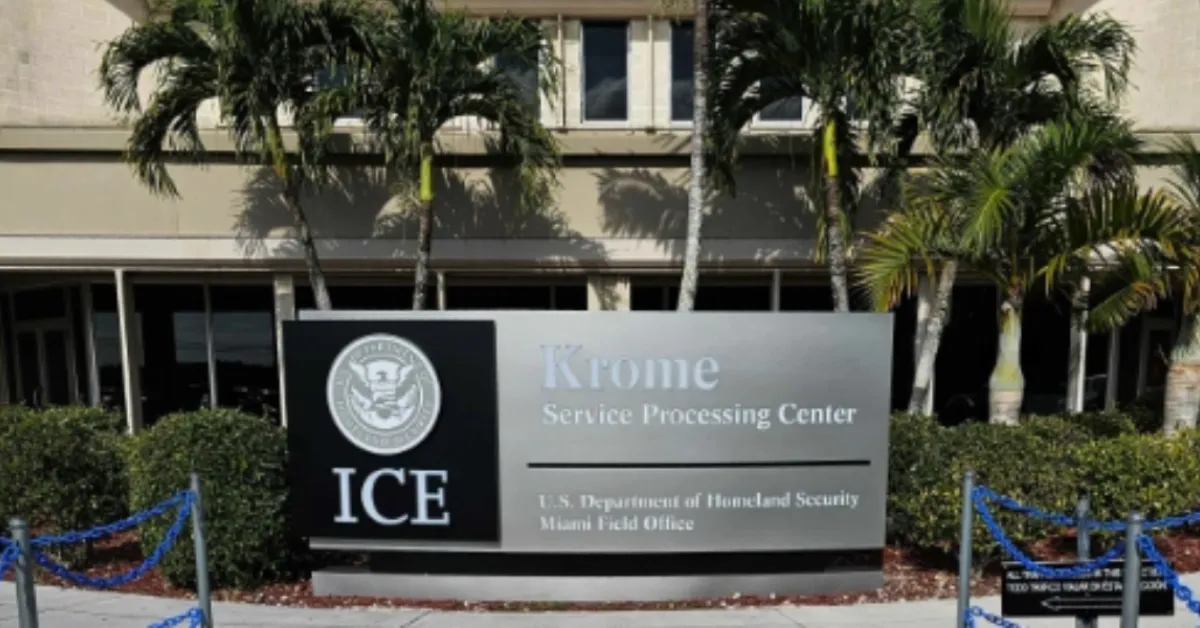Non-Criminal Immigrants Now Make Up Fastest-Growing Segment in US ICE Detention

Amid the Trump administration's intensified immigration enforcement campaign, new data reveals a significant increase in the detention of undocumented immigrants without criminal records, prompting growing concern and renewed scrutiny of deportation policies.
The shift, evident in figures from the Deportation Data Project, suggests a divergence between official rhetoric and actual enforcement outcomes.
As of early July, Immigration and Customs Enforcement (ICE) detention facilities across the United States held over 56,000 individuals, with nearly half, roughly 30,000, lacking any criminal convictions. This demographic has experienced the most rapid expansion in recent months, raising questions about the administration's stated prioritisation of deporting violent offenders.
The surge in detentions follows a directive instructing ICE agents to conduct 3,000 arrests daily, a substantial increase from prior enforcement levels. Professor Graeme Blair of UCLA, co-director of the Deportation Data Project, observed the change following ICE raids in Los Angeles, where arrests of non-criminal immigrants rose sharply. Despite claims by officials such as Border Czar Tom Homan and White House adviser Stephen Miller that the focus remains on "the worst of the worst," the data suggests a different reality.
NPR's analysis of ICE data corroborates the findings, showing that detentions of non-criminal immigrants have almost doubled since May, outpacing all other categories. While detention figures in the early months of President Trump's second term mirrored those under the Biden administration, the recent surge, particularly amongst those without criminal histories, indicates a strategic recalibration.
Despite repeated requests, the Trump administration has not commented on the discrepancy between its public messaging and enforcement outcomes. At a recent press conference, both President Trump and Attorney General Pam Bondi reiterated that the focus remains on violent criminals. However, internal communications and public statements from officials have acknowledged the inevitability of "collateral arrests," implying that mere undocumented status may now suffice for detention and removal.
The human impact of this policy shift is becoming increasingly apparent. One prominent example is the case of Pastor Maurilio Ambrocio, a Guatemalan national who lived in the United States for three decades. Ambrocio, who ran a landscaping business and led a local church, had no criminal record and was subject to a stay of removal, requiring annual check-ins with immigration authorities.
After 13 years of compliance, he was arrested during a routine appointment and deported to Guatemala in late June. Ambrocio's deportation has resonated deeply within his Florida community. Greg Johns, a Trump supporter residing across the street from the Ambrocio family, expressed regret over the administration's approach.
Public sentiment appears to be evolving. A Gallup poll last year indicated that 55% of Americans favoured reduced immigration. However, a more recent survey conducted by NPR, PBS News, and Marist reveals that 52% now disapprove of the administration's current enforcement strategy. This reversal suggests growing unease with the scale and nature of the deportation campaign, especially as its consequences affect long-standing members of local communities.














Add new comment